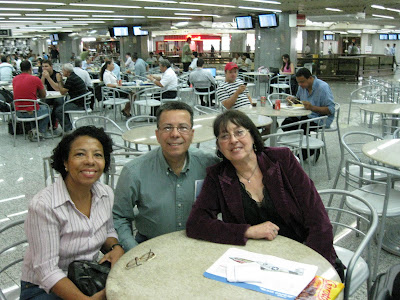Lost in Translation
Ask anyone who has done some travel how paralyzing it is not
to understand or to be understood. The sense of alienation can be devastating.
Like Looking at a menu and pointing at something you are not sure what it is,
or thinking you ordered something to get something else totally different.
In my first trip to England as Cadet on the M/V Serra Verde,
I was in a store with the Chief Steward. I had a coldsore and he tried to help
by asking the store attendant for a chap stick for me. Not knowing the word in
English he pointed to me and made a motion in front of his lips with his hand.
The store attendant looked puzzled thinking that he wanted lipstick for me.
Electronic translation is becoming quite popular as it gets more
reliable. Word processing programs caries a tab that will translate any text to
almost any language. But what happens when an English phrase is translated
literally by computer?
As my written Spanish
is not as good as my spoken Spanish, I send an email to the duty translator
with the text I needed in Spanish. I walked to the office where the lady was
doing her work and found to my amazement that she was using the computer to
translate the text. However, the computer translation for “Dear Mr. Ramon” was “Querido Sr.
Ramon”. Querido in Spanish means
darling, beloved. I’m glad I caught the embarrassing mistake.
In a global environment the quest for meaning and security
is seriously threaten by the ability to understand and be understood; easily what
we express is lost in translation. Antoine
de Saint-Exupery in The Little Prince, a fable of love and loneliness, says
that “Language is the source of misunderstanding.” Yet, the book was translated
into more than 250 languages.


Comments